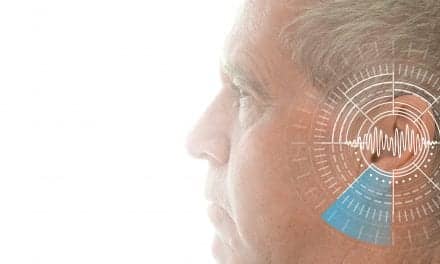February 8, 2008
A new working party report from the Royal College of Physicians says that patients with hearing and balance disorders can wait years to be seen by an appropriate specialist, and often remain undiagnosed and inadequately managed.
This is because a dedicated and specialized audiological/vestibular service* is only available in a few specialist centers, with no provision in most of the country. There is also a severe shortage of state-of-the-art audiology, tinnitus or vestibular clinics, with limited access to an integrated multidisciplinary team with the appropriate specialists.
‘Hearing and Balance Disorders: Achieving excellence in diagnosis and management’ was produced by a multidisciplinary working party, taking evidence from a wide variety of sources.
t least half the population suffers hearing and/or balance disorders at some point in their life, with 17% of 18-60 year-olds suffering hearing loss, this figure rising steeply with age. Disorders of the ear represent 24% of all disabilities in the adult population. The condition affects learning and development, is socially isolating and also has economic consequences for those of working age. Balance disorders similarly occur from childhood to old age, are associated with all major illnesses (eg cardiovascular disease, cerebrovascular disease and diabetes) and affect 30-40% of the population by 60 years of age with significant occupational and healthcare costs.
The report says that patients who should be referred to an audiovestibular physician supported by a specialist multidisciplinary team are frequently referred to other specialists because there is no audiovestibular physician or adequately staffed multidisciplinary team available in their locality. Doctors in the other hard-pressed specialties who have patients referred to them are doing their best for these patients, but they themselves would appreciate being able to refer specific cases to audiovestibular physicians.
The report recommends:
– a reorganized multidisciplinary service model with improved medical support
– an increase in the number of audiovestibular physicians and paediatricians
– a greater emphasis on the specialty in medical training.
To meet the NHS targets of rapid, easy access to medical care, the report proposes a three-tier multidisciplinary managed network of care for hearing and balance disorders. A healthcare scientist/GP-led primary care service should be developed and have access to and support from hospital centers, with audiovestibular physicians as part of the MDT. These centers, in turn, will be linked to tertiary centers with state-of-the-art facilities and medical and non-medical staff with supraspecialty expertise. This will enable rapid, high quality care close to the patient’s home for the most routine cases, with seamless, prompt and direct access to supraspecialist care for complex cases, as required by current NHS directives.
Professor Linda Luxon, Chair of the working party and Professor of Audiological Medicine, University of London, said:
"Hearing disorders are reported by the WHO to be the commonest sensory disability worldwide and approximately 40% of the population have experienced symptoms of imbalance by the age of 40 years. Patients with such symptoms report severely impaired quality of life, but do not tend to suffer from life threatening conditions, such that medical care has not been deemed a priority. Recent government and third sector initiatives have significantly improved the provision of hearing aids especially for the elderly, but adequate medical and scientific resources for accurate diagnosis and optimal management of patients with complex hearing conditions and, particularly, balance disorders remain woefully inadequate throughout most of the UK.
The proposals highlighted in "Hearing and Balance Disorders – achieving excellence in diagnosis and management" would enable better integrated care, maximise the skills and potentials of all heathcare professionals and support Department of Health initiatives including the 18 week programme and care nearer to home."
Professor Ian Gilmore, President of the Royal College of Physicians, said:
"Hearing loss and balance disorders are hidden handicaps with profound personal, occupational and economic consequences. Despite at least half the population suffer such symptoms during their lifetime, people with these debilitating conditions do not get the priority service they deserve, as recognised by the House of Commons Health Committee report in 2007."
Jackie Ballard, Chief Executive of RNID, said: "Patients with hearing loss can suffer from depression, isolation and can find it hard to get by in work and social situations.
"RNID knows of areas where the waiting time for hearing aids is up to two and a half years – so it comes as no surprise that patients are also waiting years to see hearing and balance disorder specialists.
"Local Primary Care Trusts hold the key. They must follow government guidance to provide people with prompt access to these services, and in particular hearing aids within 18 weeks for all those who need them," Ballard says.
Source: Medical News Today




